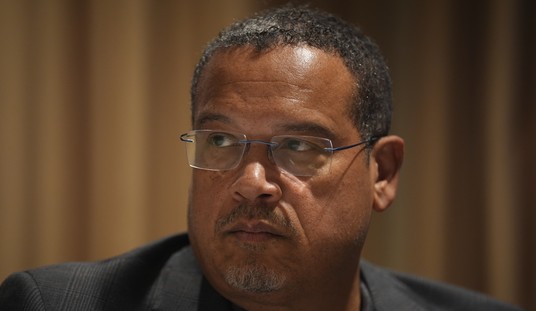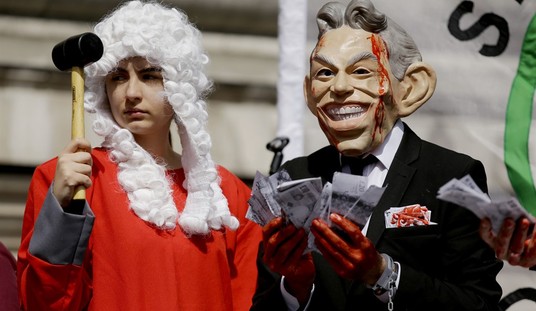This morning, Fox reports that Team Trump will announce a voter-fraud lawsuit in Nevada, a state that halted its reporting yesterday morning. It’s the third state so far in which the campaign will ask for court intervention:
Ric Grenell, the former acting Director of National Intelligence, is slated to hold a Thursday morning press conference in Las Vegas to announce the Trump campaign is filing a lawsuit that seeks to count every “legal” vote.
The Trump campaign is alleging that at least 10,000 people voted in the state, despite no longer living there.
At least this says that the campaign wants votes counted, albeit restricted to only the “legal” votes. Trump’s message this morning was a bit more broad:
https://twitter.com/realDonaldTrump/status/1324353932022480896?ref_src=twsrc%5Etfw%7Ctwcamp%5Etweetembed%7Ctwterm%5E1324353932022480896%7Ctwgr%5Eshare_3&ref_url=https%3A%2F%2Fhotair.com%2Fwp%2Fwp-admin%2Fpost.php%3Faction%3Deditpost%3D4304852
Before we get to the legalities, the messaging here is a bit … weird. If we “stop the count” in place as it stands, that would make Joe Biden president, 270-268, based on winning Nevada and Arizona. In fact, Republicans are reportedly demonstrating in Arizona and chanting “Count the Votes!” Trump needs the vote counts to continue in those two states, even as he might be getting a bit nervous about the counting in Pennsylvania and Georgia.
And how healthy will it be for Republicans to embrace a “stop the count” message in the future, anyway?
Will courts back Trump’s call to “STOP THE COUNT”? Jonathan Turley thinks they might in Pennsylvania because of the unique issues presented in that state — and an earlier Supreme Court punt on them. These are “categorical” issues, such as postmark and signature enforcement based on statute, and Turley thinks that the Trump team does have a case based on the statutory requirements being waived by the state in its counting process:
Andy McCarthy thinks there’s a case in Pennsylvania, too:
As repeatedly recounted (most recently, in Wednesday’s column), the state supreme court, by fiat, ordered a the three-day extension of the November 3 Election Day deadline for the state’s receipt of mail-in votes — i.e., until close-of-business November 6. I believe this was an unconstitutional usurpation of the state legislature’s power to set the rules for elections. If so, that would give the Trump campaign a basis to seek the Supreme Court’s intervention. Indeed, four justices on the high court were poised to grant a stay against the state court’s order in mid-October; and just last week, three of those justices induced Pennsylvania to agree to segregate the ballots received during the three-day extension, anticipating that the Court might review the matter on an expedited basis after Election Day.
In addition, the Trump campaign could also argue that there was a significant potential for vote fraud because of the presumption the Pennsylvania court imposed on its extension order: Ballots are to be deemed timely submitted even if they lack a legible postmark — or any postmark at all — proving they were mailed on or before November 3. Obviously, this creates the possibility that ballots could be harvested and submitted post-election without postmarks — theoretically, in large enough quantities to change the result that would have been obtained if only the ballots truly submitted by November 3 were tallied.
However, McCarthy also thinks that this might be mooted by either a Trump win, or the fact that relatively few ballots actually fall into that category:
It is at least equally likely, though, that either 1) Trump will hold on and win the state, or 2) the vote will break so sharply for Biden that he (Biden) wins by one or two points. In the first of those latter two scenarios, the likely illegality and potential fraud would be irrelevant. And even if Biden wins (the second of those scenarios), it only matters if so many Biden ballots arrived between November 4 and 6 that they could have been the difference-maker, shifting the contest from Trump to Biden.
If it turns out that we are talking only about a few thousand late-arriving votes, and either candidate has prevailed by thousands more than that, it’s much ado about nothing.
Want to bet which way the Supreme Court hopes this turns out?
What about the other lawsuits? Donald Trump’s legal team has already begun filing lawsuits in key states challenging the ballot-counting processes for mail-in and absentee voting. Courts are likely to take a dim view of intervention before the counting ends on those, or of throwing out already-counted votes. The Washington Post’s Edward Foley explains why:
Republicans have claimed that the state Supreme Court’s ruling violates the federal Constitution, which grants the power to write rules governing elections to state “legislatures.” The U.S. Supreme Court has yet to decide the question of what, if any, authority that leaves to state courts; that’s the difficult and important issue that it has ducked so far.
But even if the court were to agree with the Republicans on their federal constitutional claim, it is doubtful that a majority of justices — having allowed the state court extension to remain in place — would also agree to invalidate ballots that benefited from the extra time.
Courts often talk about reliance interests and have recognized that these are particularly important in the context of elections: the ability of voters to know what the rules of the road are and to act accordingly. Voters who relied on the state Supreme Court’s ruling were complying with the law as it existed and they reasonably understood it. The justices could correct the state Supreme Court’s error for the future and still let these ballots be counted.
That might not be the slam dunk that Foley assumes. If the Supreme Court finds the original order in error, then the clear presumption would be that voters should have relied on the statutory provisions on elections, not promises made by politicians. Voters had plenty of time to ensure their ballots arrived by the statutory deadline. A failure to meet that deadline is their responsibility, not the court’s, and a failure to communicate the legal restrictions on voting is the responsibility of the officeholders in place.
Still, courts are almost always loathe to invalidate ballots, especially as broadly as Republicans are demanding in Pennsylvania. Because of the clear-cut statutory issues, the Supreme Court might need to do it in that case. In other cases, where there are no categorical issues but are instead murky issues of handling, don’t bet on a court rescue. But Pennsylvania might be the only real intervention Team Trump needs.








Join the conversation as a VIP Member